"It is very difficult for developed democracies to impose their values"
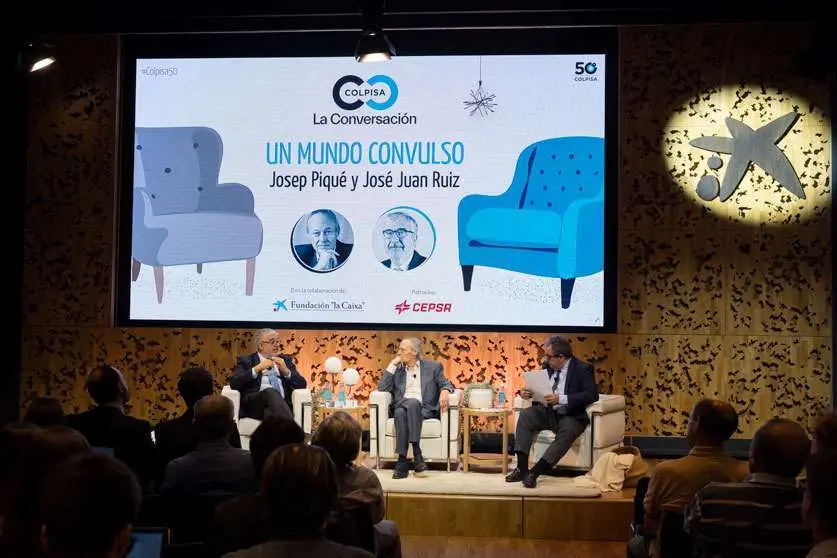
The increasingly reviled fourth power, what we are used to calling journalism, continues to play a preponderant role in the heart of democratic societies, threatened in our era by the noise of 'fake news', over-information or manipulation on social networks. In this scenario, it is necessary to vindicate good journalism, a journalism that allows us to know, to analyse and, why not, to be entertained. And, incidentally, to reflect on the reality we live in. But for this to happen, dialogue in quiet spaces is essential. To stop and listen.
The Colpisa news agency is using these recipes to celebrate its 50th anniversary. The Vocento media company is organising a new series of conferences, conversations and interviews "of high journalistic and media value" with the aim of opening a space for reflection and analysis with the most representative figures of our time. They address the challenges of the present and the future for companies, individuals and society as a whole.
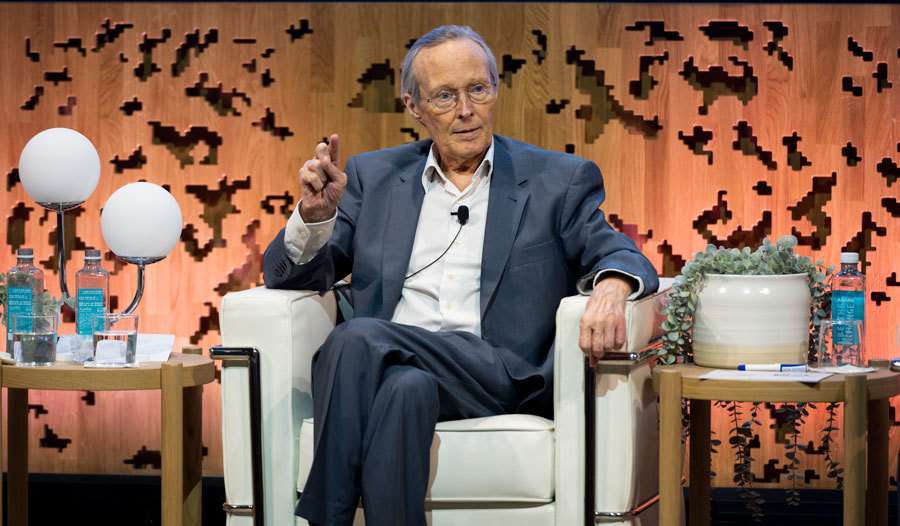
In the space known as 'The Conversation' on Wednesday, two guests of recognised prestige, José Juan Ruiz, President of the Elcano Royal Institute, and Josep Piqué, former Minister of Foreign Affairs of the Spanish Government, discussed, under the title 'A convulsive world', decisive issues in international politics that have irreversibly altered the global scene. The war in Ukraine, the effects of inflation, the hydrocarbon crisis and the role of Spain...
The director of Atalayar, Javier Fernández Arribas, moderated a high-level dialogue that dealt in depth with some of the key issues that will define the direction of the next decade in terms of international relations.
Josep Piqué outlined in just three minutes the historical journey since the second half of the 20th century. "Many things have taken us by surprise, from the fall of the Berlin Wall to the disintegration of the Soviet Union, including attacks and invasions... the world has always been in turmoil," said the former minister, who lived through an era marked by bipolarity and the constant risk of nuclear confrontation.
"It was a world of equilibrium that was full of conflicts, such as the Korean War or Vietnam... but there was a nuclear threat from the two powers that guaranteed mutual destruction," Piqué explained. "It was a world in a permanent stalemate".
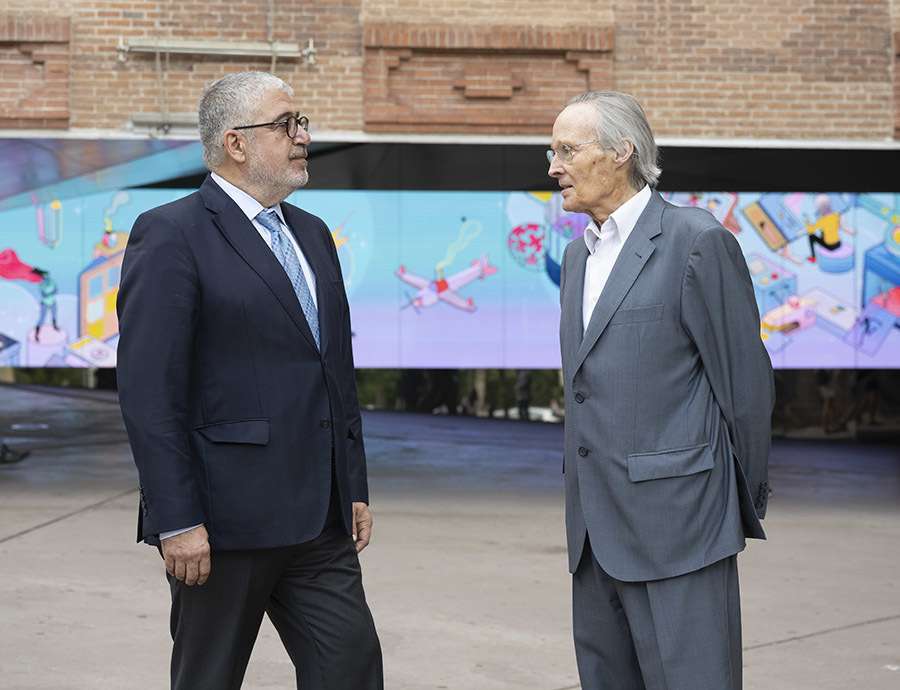
With the arrival of the new international order, what Fukuyama described as "the end of history", the world entered a period of apparent tranquillity that was soon nipped in the bud by the rise of Islamic fundamentalism with the 9/11 attacks. But that multilateral international order with US hegemony would remain in place until a few years later.
Today it is China that competes for global supremacy, but "there are other powers to take into account in the analysis, such as India, Turkey, the European Union... it is a completely different geopolitical dynamic", said the former minister, who gave several examples of the complexities that prevent a clear diagnosis from being made. "Unexpected events such as the pandemic or the Russian invasion have occurred, and we are seeing how the world is being drawn out of this situation".
"The Russian invasion has not been endorsed by almost anyone," added Piqué. "The rest of the world has not joined the Western sanctions, they have taken a low profile and have started to observe the situation to see if the new scenario can benefit them", the former minister said, in a clear reference to Latin America and Africa, two regions with serious structural problems that are seeking to fish in troubled waters to improve their conditions.
"I subscribe to the idea that all generations think that their moments are historic. It is a struggle between reason and sentiment", Ruiz began his speech, in contrast to Piqué's point of view. "If one were to look at the data, one would realise that today the world is a much better place than it has ever been. It is a world that, if you were given a choice, you would probably choose to live in", said the President of the Elcano Royal Institute.
But the economist acknowledged that we live in a "much more uncertain" world where it is increasingly difficult to predict where we are going or what will happen next. In this sense, we must analyse what the next scenario might be.
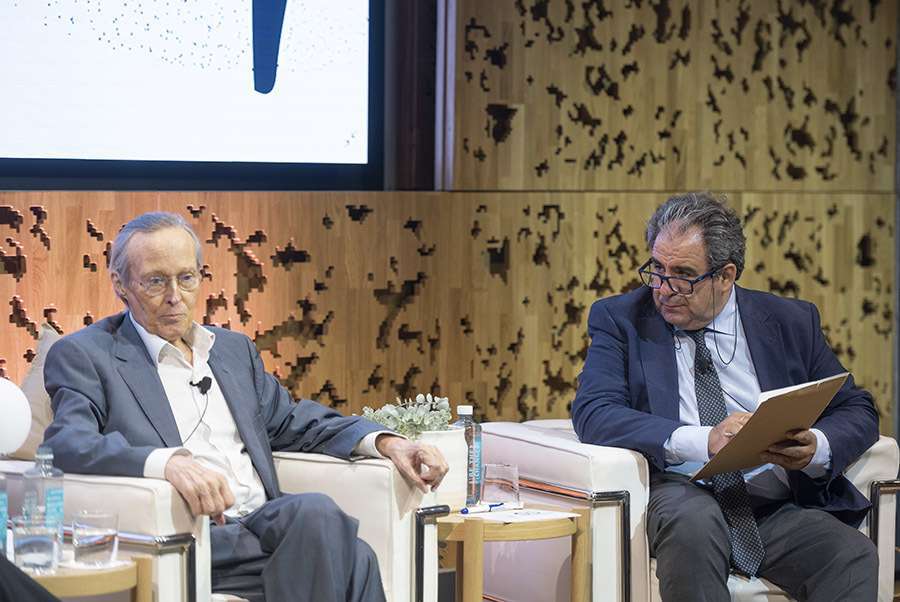
"Economists turn to models, and if one asks what is happening to us today, the answer is that we do not understand the existing international order," Ruiz said. In his opinion, the international order is understood on the basis of the three main elements that define it, such as interests, institutions and values. "The world of the Pax Americana monopolised values, which generated institutions that in turn generated benevolent interests to a greater or lesser extent".
The reality of today's world has changed. "This is not about the West," Ruiz asserted, "this is about democracies versus tyrannies". "This is the great debate before us. What we are seeing is that it is very difficult for developed democracies to impose their values". The President of the Elcano Royal Institute provided an essential piece of data to put the issue into perspective: some 45 countries that make up 40% of the world's GDP have not supported the West's response to the invasion:
"We have 70% of the world in front of us, democracies need partners", the economist moved before paraphrasing Clinton by uttering his well-known phrase "it's the economy, stupid". But for Ruiz, the debate now does not revolve around the economy, as is commonly thought, but "it's politics, stupid".
Josep Piqué blamed the "non-geographic" West, i.e. developed democracies, for the past mistakes that have led to this scenario. The discrediting of democracy. "We have had the propensity to think that others tend to think like us, and they have not. We thought we could build democracies in societies that have never thought in the same terms as we do," he said, alluding to the cases of Iraq or Afghanistan.
"We have to look for something we can all agree on: the principle of non-interference and respect for territorial integrity, as well as the renunciation of the use of force. And on that basis, we must try to build a liveable world", argued the former minister, who also pointed out that "populism also exists in our homes".
For Josep Piqué, however, putting it as a dichotomy between democracies and autocracies is not entirely accurate. "For example, where is Latin America now? In the same way as in Africa, where China's presence is also palpable". In this sense, the Director of Atalayar posed a question that explains, or at least justifies, the behaviour of African or Latin American societies: "Perhaps a fairer globalisation is necessary".
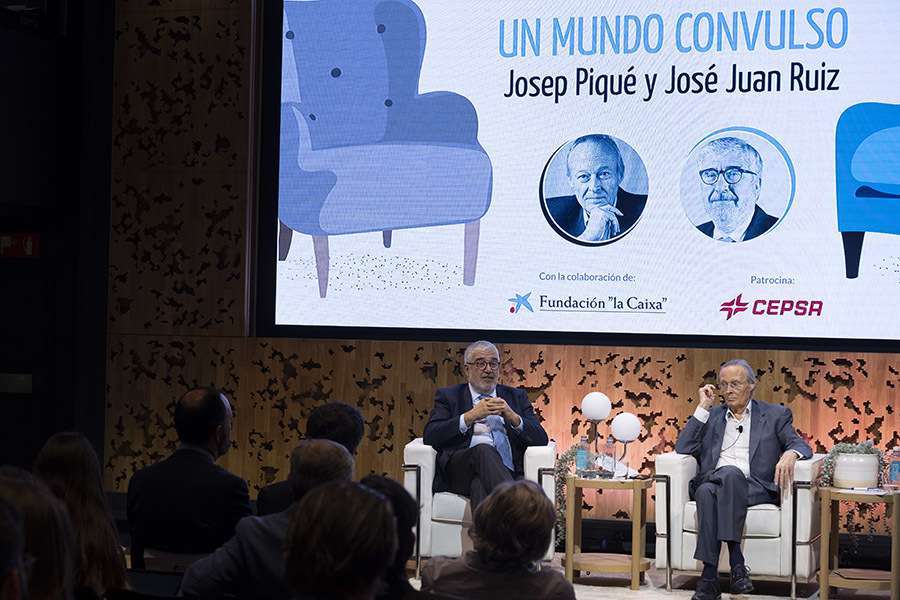
The President of the Elcano Royal Institute pointed out that "globalisation is not thought of in a laboratory", but acknowledged that the West is precisely to blame for the degradation that the institutions governing globalisation have undergone. "The problem is not globalisation, but globalisation without governance that allows everyone to be included," Ruiz said.
"Don't think that globalisation is in decline: trade and investment flows are higher than they were before the pandemic. What is happening is that it is reorganising who participates and who does not". For the economist, energy will continue to be fundamental at this stage: "Following the geo-strategy of energy counts more in terms of knowing the direction in which we are heading. The biggest change will occur if Europe disconnects from Russia, reduces its dependence".
In Piqué's view, globalisation has been "profoundly positive, but it is another thing if it is perceived negatively by the Western middle classes, which explains the populist phenomenon". In the wake of the pandemic, the former minister points out that it will be crucial to maintain security of supply, reduce foreign dependence, maintain strategic reserves... In short, to adapt to change. Again and again.








